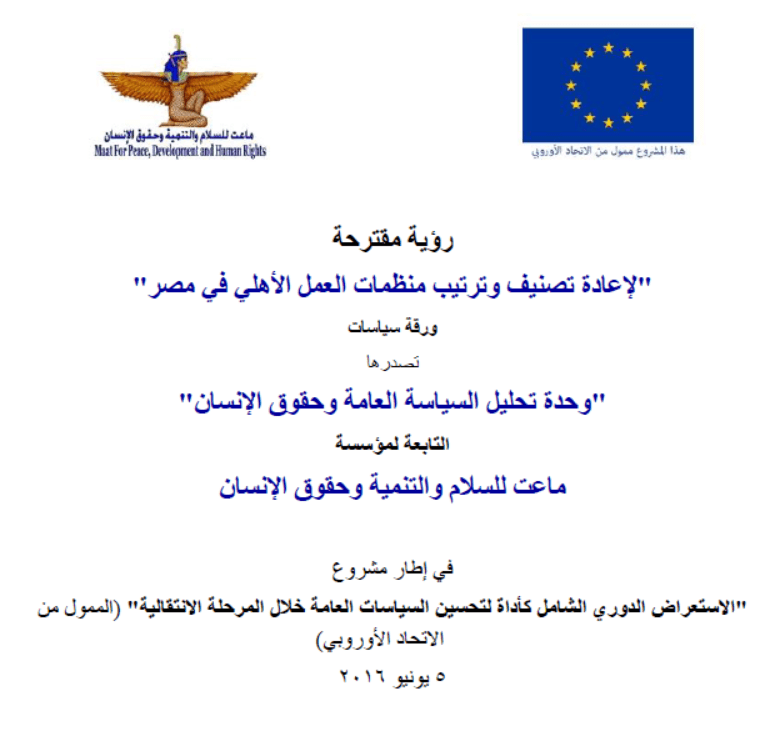The Policy Analysis Unit at Maat Foundation issues a new paper
A vision to re-classify and arrange civil work organizations in Egypt
The Policy Analysis Unit of the Maat Foundation for Peace, Development and Human Rights released a new paper entitled “ A proposed vision for reclassifying and arranging private work organizations in Egypt “This is part of a project The Universal Periodic Review as a Tool to Improve Public Policies during the Transition Which is implemented by the Foundation with funding from the European Union over the course of 2016-2017.
Within the framework of the current debate related to changing the NGO law in Egypt in line with the essence and text of the Egyptian constitution on the one hand and international obligations on the other hand, the Public Policy Analysis Unit at Maat Foundation for Peace, Development and Human Rights has directed to issue a set of policy papers that address various aspects of civil work, including It helps the legislative institution to see best practices in amending the law, and the last paper addressed the issue of classification of private business institutions in Egypt, and the need for the new law to include fair and appropriate rules in dealing with NGOs according to their specific weight, institutional capabilities and degree of growth.
The paper came out with a view that NGOs are legally classified according to two criteria, the first being the nature of the main activity, and the second being the organizational level.
Regarding the nature of the main activity, the paper suggested that the organization should be registered under one of six types: relief, supportive, defensive, research, cultural, social and religious services organizations.
As for the classification according to the organizational level, the paper suggested that the organizations be divided into three categories “A”, “B”, and “C”. Each classification has an administrative level that deals with it (Ministry - Directorate - Administration). The paper suggested that the arrangement be done according to a group. Among the most important criteria are: the organization's internal governance pattern, the size of the annual budget, obtaining an advisory position or membership in international and regional organizations, the geographical spread of the organization’s activities, the results of the organization’s work and its impact.
To view the full paper on the link
shortlink: https://maatpeace.org/en/?p=14666












